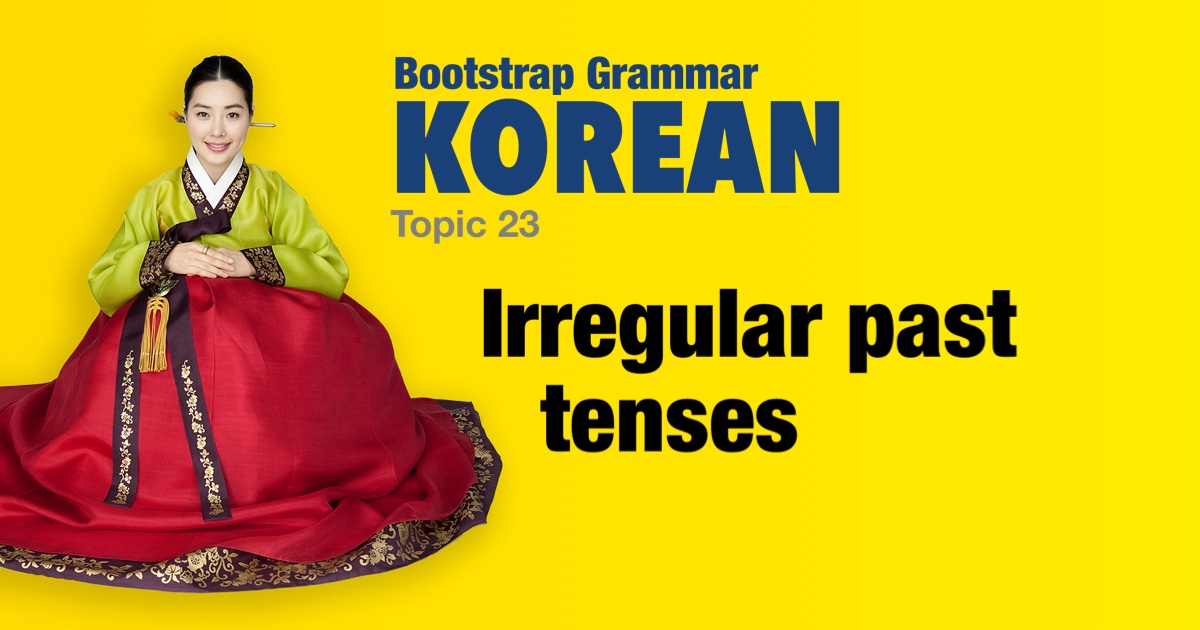Korean grammar - Irregular past tenses |
|||
|
|||
There are four very common verbs that have irregular past tenses: • 이다 (to be) ⇒ 이었어요 or 였어요 following a vowel • 하다 (to do) ⇒ 했어요 • 되다 (to become) ⇒ 됐어요 • 어떻다 (to be how, to be in what state) ⇒ 어땠어요 These verbs do no merge vowels according to the rules laid out in the previous topic. |
| Examples: | |
|
아버지는 경찰관이었어요.
(My) father was a policeman.
|
|
|
형은 야구 선수였어요.
(My) older brother was a baseball player.
|
|
|
소방관은 친절했어요.
The fireman was kind.
|
|
|
할머니는 가난했어요.
(My) grandmother was poor.
|
|
|
진희는 직장을 못 구했어요.
Jinhee couldn’t find a job.
|
|
|
그녀는 작년에 학생이었어요.
Last year she was a student.
|
|
|
미나였어요?
Was (that) Mina?
|
|
|
민준이가 교수가 됐어요.
Minjun became a professor.
|
|
|
오늘 어땠어요?
How are you today?
|
|
|
오늘 어땠어요?
How are you today?
|
|
|
오늘 하루 어땠어요?
How was your day?
|
|
|
언제 그렇게 됐어요?
When did it (like that) happen?
|
|
|
여행이 취소됐어요.
The trip has been cancelled.
|
|
 |
|




